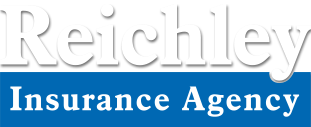What You Need to Know When Shopping for Commercial Auto Insurance
Commercial Auto Insurance
As a business owner, ensuring the safety of your employees, vehicles, and assets is of utmost importance. That’s why having commercial auto insurance is a must. Commercial auto insurance is designed to protect your business in the event of an accident involving your company vehicle(s). However, shopping for commercial auto insurance can be a daunting task, especially if you’re not familiar with the process. Here are some things you need to know before shopping for commercial auto insurance.
Know the types of coverage you need.
Before you start shopping for commercial auto insurance, it’s important to know the types of coverage your business needs. This will depend on the type of vehicles you have and how they’re used. Some of the most common types of commercial auto insurance coverage include liability coverage, collision coverage, comprehensive coverage, uninsured/underinsured motorist coverage, and medical payments coverage.
Understand the limits of coverage.
When shopping for commercial auto insurance, it’s important to understand the limits of coverage. The limit of coverage is the maximum amount that an insurance company will pay for a covered claim. Make sure that the limit of coverage is enough to cover the potential damages and liabilities your business may face in the event of an accident.
Have us shop around for quotes.
Like any other type of insurance, it’s important to shop around for quotes when looking for commercial auto insurance. Compare quotes from different insurance companies to find the best coverage at the best price. Make sure to compare apples-to-apples, so you are comparing the same level of coverage from different providers.
Check the insurance company’s reputation.
When choosing an insurance company, it’s important to check their reputation. Look for reviews from other business owners, ratings from independent agencies, and any history of complaints or legal actions against the insurance company.
Consider a package deal.
If you have multiple insurance needs, consider bundling your commercial auto insurance with other types of business insurance. This can often result in a lower premium and simplified billing.
Understand the deductibles.
When choosing commercial auto insurance, it’s important to understand the deductibles. A deductible is the amount that you’ll have to pay out of pocket before your insurance kicks in. Choose a deductible that you can afford in the event of an accident.
Read the fine print.
As with any insurance policy, it’s important to read the fine print. Make sure you understand the policy’s exclusions, limitations, and any additional fees or charges. Knowing the policy in and out will give you the peace of mind that you have the right coverage for your business.
In conclusion, commercial auto insurance is an important investment for any business with vehicles. When shopping for commercial auto insurance, be sure to consider your specific needs, compare quotes from different providers, check the insurance company’s reputation, understand the limits of coverage, and read the fine print. By doing so, you can find the right coverage to protect your business and its assets.
As a business owner, you have enough on your mind without having to worry about your insurance needs. You want to have the confidence that the business you’ve built is covered by a company that understands your business insurance needs.
Commercial business insurance provides wide-ranging protection for businesses and their subsidiaries under a single policy. There are various types of commercial business insurance that takes care of property, liability and workers’ compensation, to name a few. While property insurance covers damages to business property and products stored within the premises; liability insurance provides coverage for damages to third parties; and commercial auto insurance covers your vehicles.
While the massive national agencies spend millions on television ads and offer barebones policies, they do not know you. When your needs change or your situation complicates, you don’t want an automated phone tree or cold cyber-agent. You want to talk to compassionate, honest insurance experts, close to home, right here in Beavercreek, OH – that’s our team. You shouldn’t have to spend hours researching and comparing policies. Let the specialists at Reichley guide you through the complex insurance industry.
Call today to alleviate the worry and get covered – (937) 429-0655.









